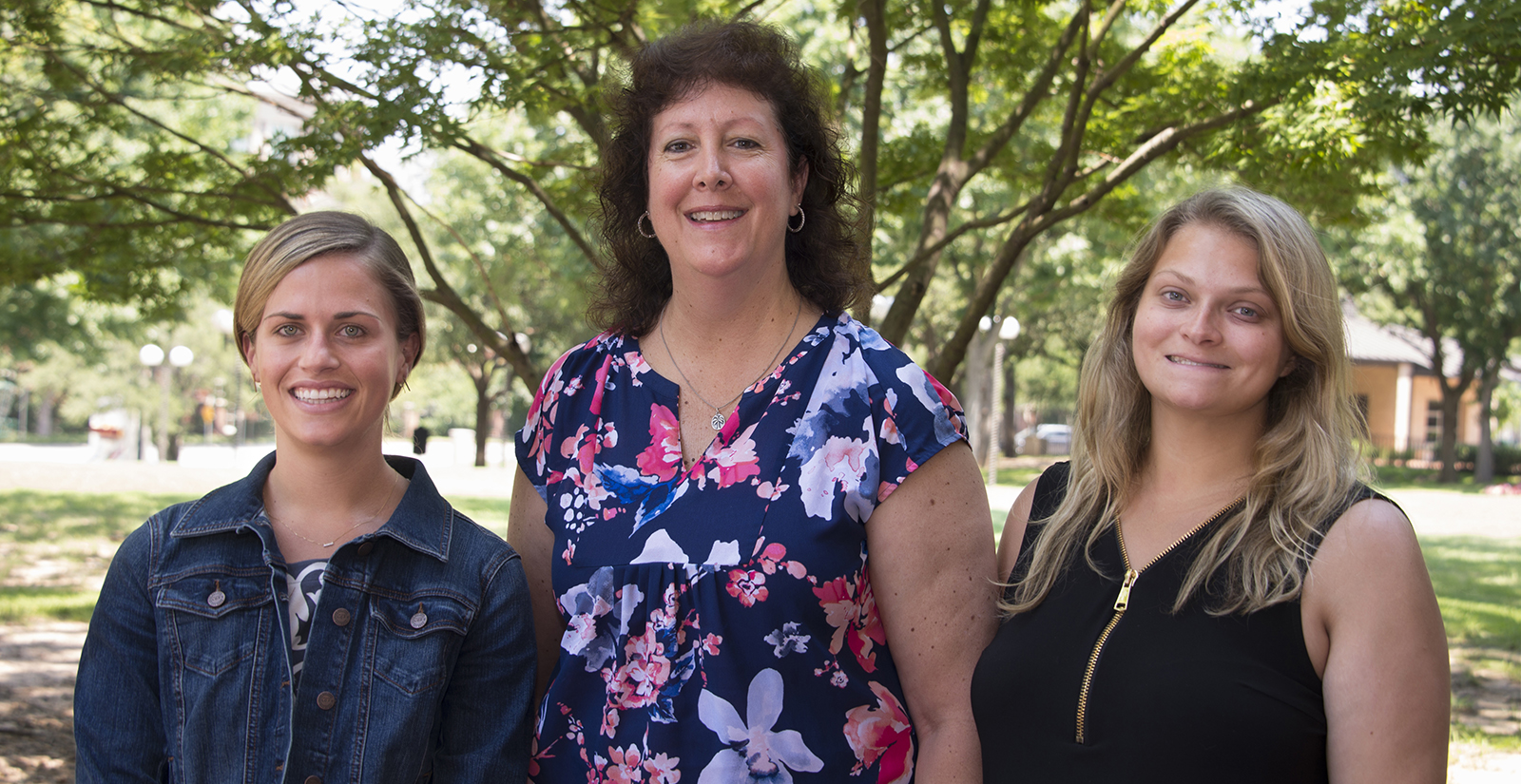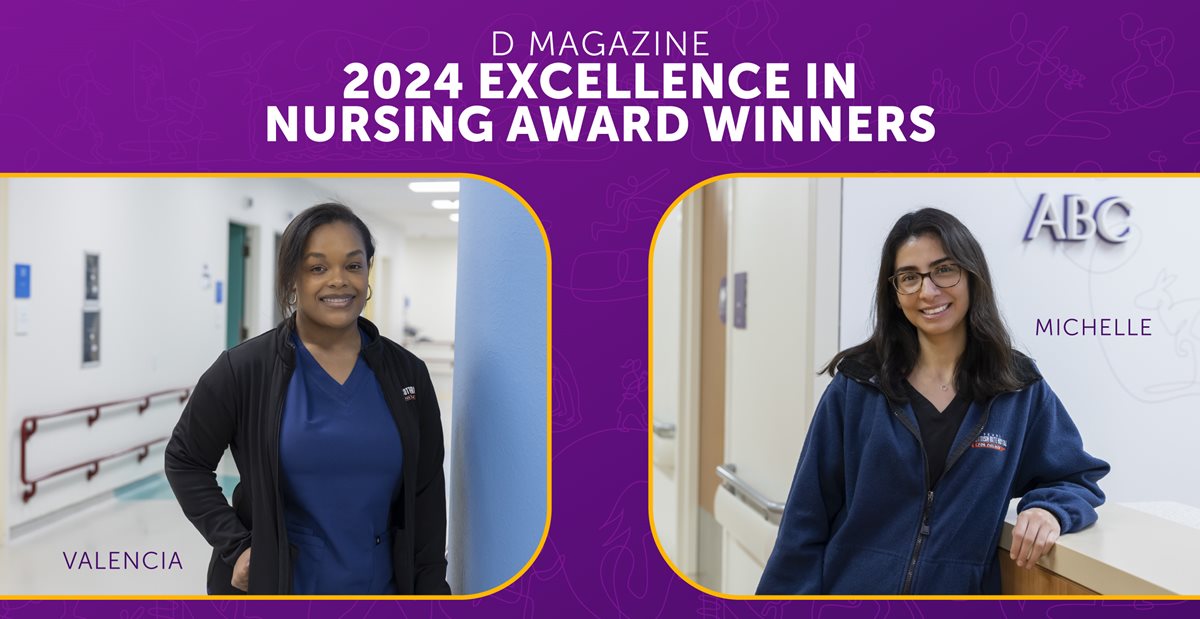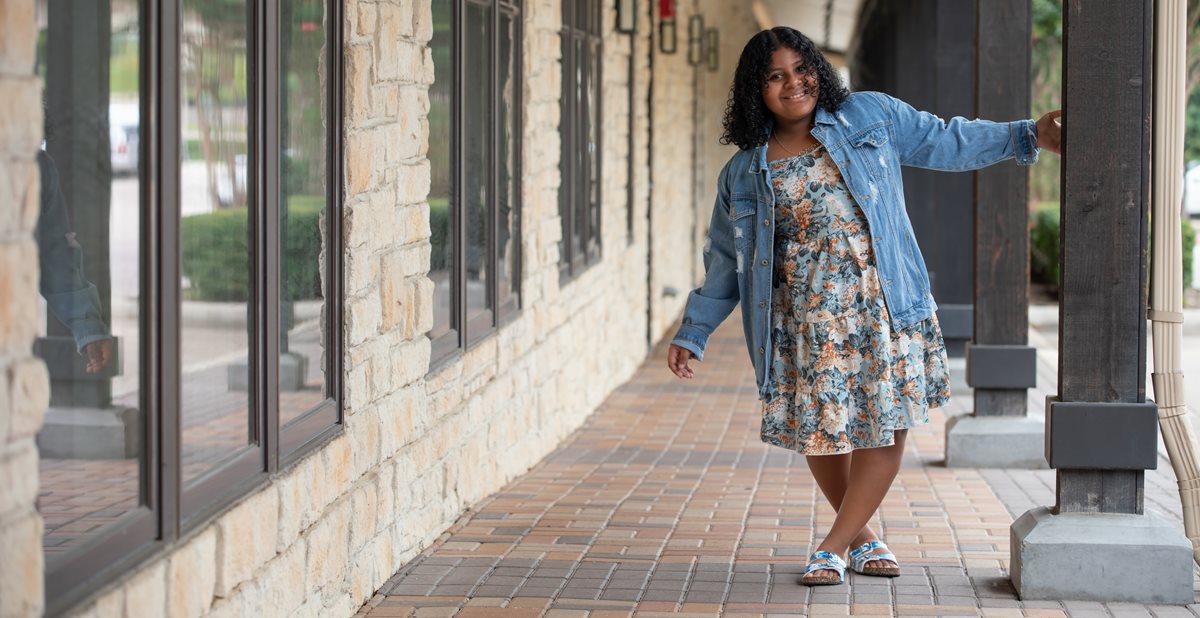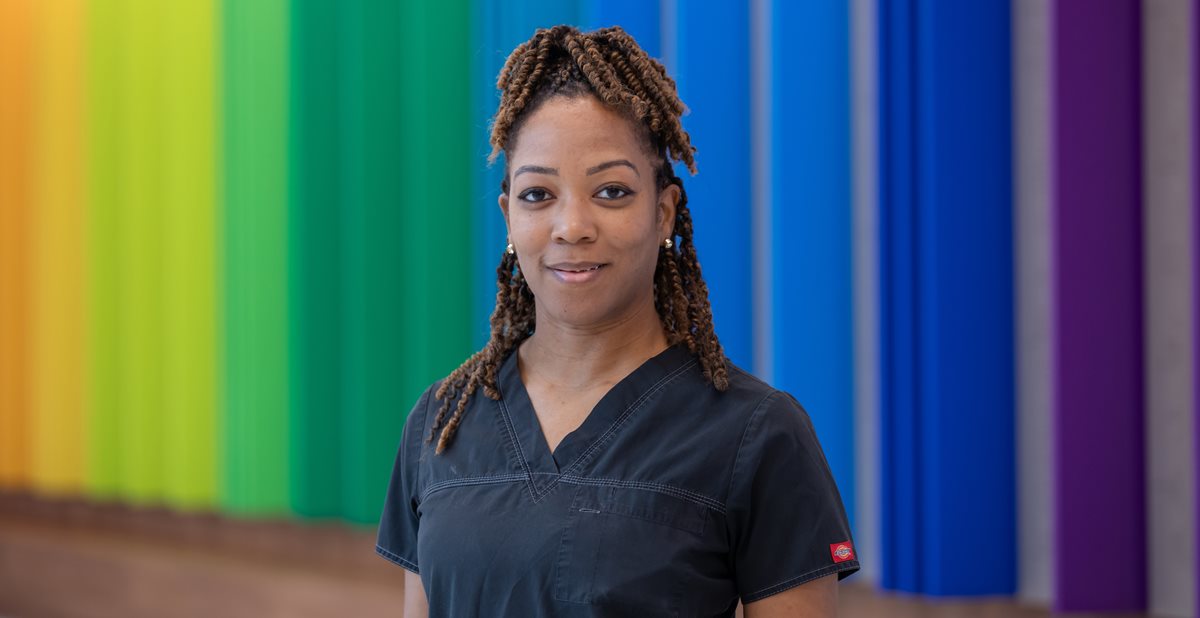
Jul 10, 2017 / General News
The Power of Play - Transforming Lives Through Therapeutic Recreation
By Ruth Ann Hensley
What does performing a piano concerto, rock climbing and making new friends have to do with learning to play golf? It turns out, more than you might imagine.
Discovering a new recreational pursuit was a turning point for 12-year-old Jasmine, who receives care at Scottish Rite Hospital for juvenile idiopathic arthritis. When Jasmine participated in the hospital’s Learn to Golf program six years ago, she was introduced to more than a pastime. She discovered self-confidence and a willingness to try new things. Benefits such as these reflect the transformative influence of the Therapeutic Recreation department’s programs and the hospital’s whole-child approach to care. Jasmine can take both the golf and the personal growth lessons with her wherever she goes and wherever her dreams take her — and that is the power of play.
“We instill self-worth and make sure our patients know they are valued and that they have a voice,” explains Allena Aussicker, a hospital certified therapeutic recreation specialist (CTRS). “We’re working on a patient’s functional skills but we’re also promoting self-respect and respect of others.”
The Therapeutic Recreation program was established 20 years ago at Scottish Rite Hospital — one of the first children’s hospitals in North Texas to provide the service. The program’s director, Dana Dempsey, M.S., CTRS, has been a leader and advocate in the field, representing the hospital at the community, state and national level.
“The whole point of therapeutic recreation is to help a child gain the skills and knowledge they need to be as independent as possible by actively engaging in meaningful play, recreation and leisure,” Dempsey says.
These activities can reap long-term physical, emotional and mental benefits for participants. For example, patients engaged in basketball don’t realize they are also improving their hand-eye coordination, motor skills and teamwork etiquette.
“That’s why they call us the sneaky therapists,” Aussicker says with a laugh.
Those unconscious lessons run deep. “The patients learn things like resilience, social skills and problem- solving, so that they’re successful in all kinds of situations,” Dempsey says. “They also learn what they like, what they value and what’s important to them.”
That is why offering such a program is important to the hospital. “Not all of our patients need therapeutic recreation but for those who do, it’s a critical element in our whole-child treatment approach,” says Daniel J. Sucato, M.D., M.S., Scottish Rite Hospital chief of staff. “The social and emotional development our patients experience from this service can be transforming.”
The Therapeutic Recreation department provides these transformative experiences in three primary ways. First, the team provides children with engaging activities and games during their hospital stay. Second, they provide leisure education to children during clinic visits, at the request of a hospital physician or caregiver. For example, a CTRS may provide a patient with a listing of recreational activities in their neighborhood or a resource for adaptive cycles.
And finally, the team conducts community outreach programs. The components include Summer All Stars, which introduces patients to numerous adaptive activities, and Chance to Dance, which encourages self- expression and movement through dance. The hospital founded these unique programs, which are generously underwritten or sponsored by hospital donors.
The hospital’s most well-known outreach program is Learn to Golf, which was established in 1998. It is the program from which Jasmine and many other patients have benefited. In the early days of the golf clinics, hospital friend and then executive committee member of the United States Golf Association (USGA), Win Padgett, made the hospital aware of grant funding available from the association.
The hospital qualified for funding and the USGA’s support of Learn to Golf has been a key factor in its success.
“It’s been regarded as one of the premier golf programs for children with disabilities,” Dempsey says. Inspired by the National Amputee Golf Association’s First Swing program, Dempsey tailored the adaptive golf lessons to children. Since then, it has become a model for hospitals throughout the country.
The Therapeutic Recreation team also helps facilitate specialized recreational camps. Jasmine attended one tailored to patients with arthritis called Camp Joint Adventure, held at Camp John Marc. The camps are designed to challenge and stimulate children in a safe environment by introducing them to new activities, team-building exercises and opportunities to socialize with peers.
“Before I came to camp, I was kind of in a shell,” Jasmine explains. “But at camp I learned how to come out of that shell and I learned self-confidence.”
Dempsey has made a special impression on Jasmine, who refers to the program director as her hero. “She cares for everybody and takes time to get to know them,” Jasmine says. “That means a lot.”
The Therapeutic Recreation team takes a personal interest in pairing children with something they enjoy doing. It also provides a well-rounded complement to the hospital’s whole-child care approach. “Patients can get wrapped up in the medical aspect of their treatment,” says hospital CTRS Mackenzi Summers. “But every child should have the opportunity for play, just as they would if they weren’t at a hospital.”
Many times, patients who seem reluctant to participate in recreational pursuits are often hiding self-conscious concerns about their physical challenges.
"We want the kids to understand that having a disability doesn’t mean they can’t be involved in something, they just might need to do it differently,” Aussicker says. “Sometimes it makes me wonder where these kids would be without our services. Would they feel they just belonged on the sidelines?” Thanks in a large part to the Therapeutic Recreation department’s transformative programs, the sideline is the last place you’ll find Jasmine. She recently won a top award at a state-level piano competition. She also plays the violin and participates in orchestra and choir.
“After her experience at the hospital, Jasmine believes she can do anything she sets her mind to,” Jasmine’s father, Andrew says. “They take a genuine interest in her, not just medically — in her life.”
On a scale of one to 10, Andrew says he would give the hospital a 12. It appears his talented, straight-A student daughter shares that opinion.
“Some people think I’m crazy for looking forward to going to a hospital,” Jasmine says of her visits to Scottish Rite Hospital. “But I think it’s fun!”
What does performing a piano concerto, rock climbing and making new friends have to do with learning to play golf? It turns out, more than you might imagine.
Discovering a new recreational pursuit was a turning point for 12-year-old Jasmine, who receives care at Scottish Rite Hospital for juvenile idiopathic arthritis. When Jasmine participated in the hospital’s Learn to Golf program six years ago, she was introduced to more than a pastime. She discovered self-confidence and a willingness to try new things. Benefits such as these reflect the transformative influence of the Therapeutic Recreation department’s programs and the hospital’s whole-child approach to care. Jasmine can take both the golf and the personal growth lessons with her wherever she goes and wherever her dreams take her — and that is the power of play.
“We instill self-worth and make sure our patients know they are valued and that they have a voice,” explains Allena Aussicker, a hospital certified therapeutic recreation specialist (CTRS). “We’re working on a patient’s functional skills but we’re also promoting self-respect and respect of others.”
The Therapeutic Recreation program was established 20 years ago at Scottish Rite Hospital — one of the first children’s hospitals in North Texas to provide the service. The program’s director, Dana Dempsey, M.S., CTRS, has been a leader and advocate in the field, representing the hospital at the community, state and national level.
“The whole point of therapeutic recreation is to help a child gain the skills and knowledge they need to be as independent as possible by actively engaging in meaningful play, recreation and leisure,” Dempsey says.
These activities can reap long-term physical, emotional and mental benefits for participants. For example, patients engaged in basketball don’t realize they are also improving their hand-eye coordination, motor skills and teamwork etiquette.
“That’s why they call us the sneaky therapists,” Aussicker says with a laugh.
Those unconscious lessons run deep. “The patients learn things like resilience, social skills and problem- solving, so that they’re successful in all kinds of situations,” Dempsey says. “They also learn what they like, what they value and what’s important to them.”
That is why offering such a program is important to the hospital. “Not all of our patients need therapeutic recreation but for those who do, it’s a critical element in our whole-child treatment approach,” says Daniel J. Sucato, M.D., M.S., Scottish Rite Hospital chief of staff. “The social and emotional development our patients experience from this service can be transforming.”
The Therapeutic Recreation department provides these transformative experiences in three primary ways. First, the team provides children with engaging activities and games during their hospital stay. Second, they provide leisure education to children during clinic visits, at the request of a hospital physician or caregiver. For example, a CTRS may provide a patient with a listing of recreational activities in their neighborhood or a resource for adaptive cycles.
And finally, the team conducts community outreach programs. The components include Summer All Stars, which introduces patients to numerous adaptive activities, and Chance to Dance, which encourages self- expression and movement through dance. The hospital founded these unique programs, which are generously underwritten or sponsored by hospital donors.
The hospital’s most well-known outreach program is Learn to Golf, which was established in 1998. It is the program from which Jasmine and many other patients have benefited. In the early days of the golf clinics, hospital friend and then executive committee member of the United States Golf Association (USGA), Win Padgett, made the hospital aware of grant funding available from the association.
The hospital qualified for funding and the USGA’s support of Learn to Golf has been a key factor in its success.
“It’s been regarded as one of the premier golf programs for children with disabilities,” Dempsey says. Inspired by the National Amputee Golf Association’s First Swing program, Dempsey tailored the adaptive golf lessons to children. Since then, it has become a model for hospitals throughout the country.
The Therapeutic Recreation team also helps facilitate specialized recreational camps. Jasmine attended one tailored to patients with arthritis called Camp Joint Adventure, held at Camp John Marc. The camps are designed to challenge and stimulate children in a safe environment by introducing them to new activities, team-building exercises and opportunities to socialize with peers.
“Before I came to camp, I was kind of in a shell,” Jasmine explains. “But at camp I learned how to come out of that shell and I learned self-confidence.”
Dempsey has made a special impression on Jasmine, who refers to the program director as her hero. “She cares for everybody and takes time to get to know them,” Jasmine says. “That means a lot.”
The Therapeutic Recreation team takes a personal interest in pairing children with something they enjoy doing. It also provides a well-rounded complement to the hospital’s whole-child care approach. “Patients can get wrapped up in the medical aspect of their treatment,” says hospital CTRS Mackenzi Summers. “But every child should have the opportunity for play, just as they would if they weren’t at a hospital.”
Many times, patients who seem reluctant to participate in recreational pursuits are often hiding self-conscious concerns about their physical challenges.
"We want the kids to understand that having a disability doesn’t mean they can’t be involved in something, they just might need to do it differently,” Aussicker says. “Sometimes it makes me wonder where these kids would be without our services. Would they feel they just belonged on the sidelines?” Thanks in a large part to the Therapeutic Recreation department’s transformative programs, the sideline is the last place you’ll find Jasmine. She recently won a top award at a state-level piano competition. She also plays the violin and participates in orchestra and choir.
“After her experience at the hospital, Jasmine believes she can do anything she sets her mind to,” Jasmine’s father, Andrew says. “They take a genuine interest in her, not just medically — in her life.”
On a scale of one to 10, Andrew says he would give the hospital a 12. It appears his talented, straight-A student daughter shares that opinion.
“Some people think I’m crazy for looking forward to going to a hospital,” Jasmine says of her visits to Scottish Rite Hospital. “But I think it’s fun!”



